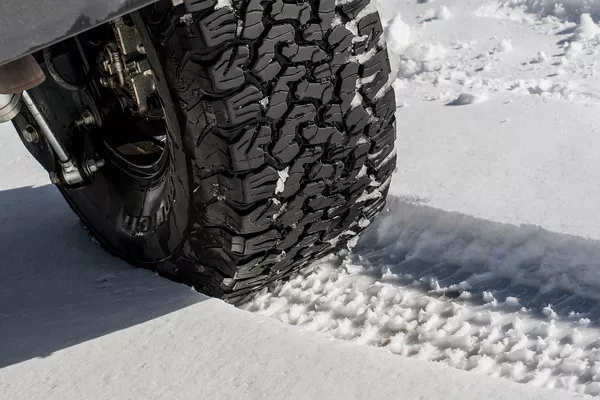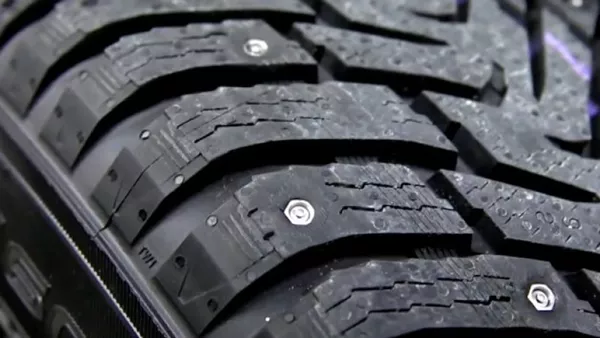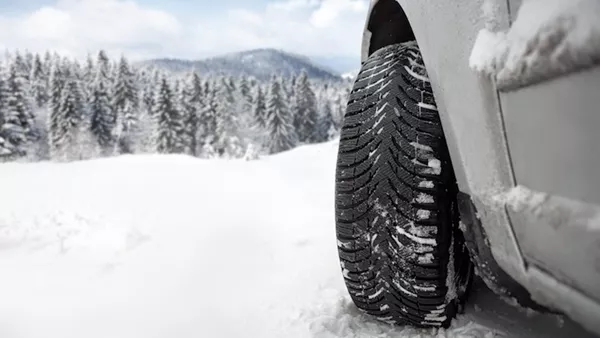Winter tires are designed to maximize grip and increase traction while driving, making the car more flexible in the cold and wet weather conditions during winter.

You need to know more about specialized tires for winter
In principle, the performance of the tire is proportional to the amount of heat that the tire receives. Meanwhile, winter tires usually have a higher silica content (*) in rubber than that in summer tires.
This means that it can preserve the heat as well as the elasticity of the tire better than tires used in summer in the same low-temperature conditions. Therefore, winter tires are a perfect choice to ensure that the traction of the car on the road is always within the safe range in the condition of very low temperatures.
The amount of tire tread on winter tire is 10 times higher than that of a summer tire. In addition, these treads are carefully crafted in the contour of the tire. As a result, the tire can move more flexible and produce more heat, thus improving the grip of the car on the road.

The amount of tire tread on winter tire is 10 times higher than that of a summer tire
Especially in conditions where the temperature is so low that snow and ice are formed, big and small grooves on the tire will be filled with snow. This is really another advantage of winter tire.
This sounds ridiculous, but in fact, when two snow surfaces come into contact, the car could travel much more easily than if the rubber surface exposes to the snow. This contact improves traction on icy snow and brings a better grip even when taking a corner.
After returning to normal weather conditions, the amount of heat generated by the tread on the tire quickly melts all the excess of snow that remains. Although in the Philippines we will not experience snowfalls, we do need to know about how tires will be different in different seasons just in case you will move aboard. Let's find out more with Philkotse.com!
1. The necessity of equipping winter car tires
If you are still wondering whether to install tires specifically for winter, experienced car experts recommend that: "It is absolutely necessary to put on winter tires." It is clear that, under the same low-temperature conditions, compared to summer tires, winter tires significantly improve the grip on the road.
This means that not only is the traction greater, but the stopping distance is much reduced and the traction when taking a corner or braking is larger. As a result, driving your car will be much safer. Some drivers even choose to buy a set of winter wheels. That way, they can simply replace the entire wheelset, rather than changing alternately between the summer and winter tire on the same wheel for each season.
>>> You might concern: Tubeless Tire Technology for cars: All you need to know.

It is absolutely necessary to put on winter tires
Remember that if you plan to do this, you will need a place to store the tires when they are not installed. Some dealers or garages can store tires if you require them, although they may charge extra for storage.
To illustrate this difference, we conducted an experiment on the Volvo S60 - a summer tire and a winter tire - on a friction plate at Silverstone.
>>> Check out: Why carmakers are ditching the spare tire?
2. Some alternatives for winter tires
There are a number of different alternatives to installing a winter tire, but experienced drivers say they are not optimal.
Snow socks
The first is "snow socks," which will wrap around your wheel and provide extra traction for the wheels on slippery surfaces. Unfortunately, they only work on snow and they will, of course, be torn apart if you forget to remove them and continue to use them on the normal road.

Use snow chains to wrap around the wheel
>>> Also check: Top 3 Tips on Getting the Best Deals on Car Accessories in Banawe Street.
Snow chains
Next is the snow chains to wrap around the wheel. They also have some similarities to 'snow socks', but they could potentially damage the road or even the car if you run on a snow-free road. In addition, these snow chains also cause noise.
For both solutions, you must wash the tire as clean as possible after use. As it is likely to be corroded due to the salt used to melt down the ice on the highway. You can also equip tires suitable for all seasons. However, this tire does not bring the same effect that lives up to its name when compared to tires specialized for winter.
(*) Silica (chemical formula SiO2): an additive added to the rubber, providing it with higher elasticity and better heat retention.
Recent posts
- How to survive driving on bald tires? Jan 12, 2019
- Tips every Pinoy car owner should know to choose the right used car tires Jul 10, 2018
- Michelin and Bridgestone, whose tires are better? Aug 04, 2020
- Why are small car tires more beneficial? Jan 15, 2018
- How to reduce car noises by taking care of the tires Nov 27, 2017











